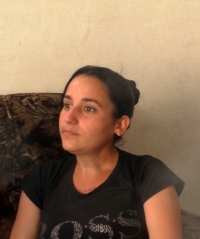Why to argue or do anything? You are always going to lose out with the communist regime.

Download image
The story of Adinay Peña Díaz is not a story about the politics or intrigues of the communist regime towards the Cuban people, but Adinay in her testimony tells about a girl who grew up in a marginal town in the mountains, without electricity or drinking water; about a pediatric nurse who had to deal with drug shortages or insufficient personal protection; about a single mother with a small daughter and, above all, about a strong Cuban woman. Adinay Peña was born in 1989 in the city of Trinidad in the Republic of Cuba, but she comes from a rural area located in the mountains. She grew up on her grandparents’ farm in Pitajones, which is why she has had a childhood of hard work. After her high school studies she decided to dedicate herself to the health sector and studied pediatric nursing, however, in the fourth grade she was expelled for an unexcused absence. Adinay worked in various pediatric clinics, until she had her daughter. During her work as a nurse she faced complicated situations, when she did not have the corresponding medical team to carry out check-ups on pregnant women or small children. The situation worsened even more with the coronavirus pandemic in 2020 and 2021. In Cuba, there are shortages of basic medicines, personal cleaning and disinfection products. Today Adinay works as a hairdresser, since in Cuba there is a lack of pediatricians and doctors and the responsibilities for patients fall on the nurses, without resources or corresponding education. She resides with her daughter in Banao City.

